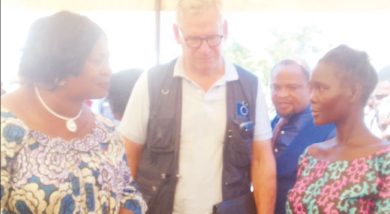NGOs suspicious of law amendments
Non-governmental organisations (NGOs) have expressed reservations at several provisions in the draft amendments to the NGO Act, especially the apparent sidelining of the Confederation of Non-Governmental Organisations in Malawi (Congoma).
Hitherto, Congoma had been coordinating the cooperation between the civil society community, government and donors.

In the NGO Act of 2001, members of the NGO Board are appointed by a Cabinet minister in consultation with Congoma. However, the draft Bill has scrapped and repealed this provision.
The amended Bill has also repealed Section 20(3)(a)(v) of the Act which required NGOs to submit proof that they were members of Congoma before registration.
Part VII of the Act, which appointed Congoma as the designated coordinating body, and Part VIII of the Act repealed the provision that Congoma would call for a general assembly for all NGOs.
But Benedicto Kondowe, head of the NGO Consortium and trustees chairperson of Congoma, said in an interview this week that the repealed and amended Section 6 (2)(d) and (f) on representing and promoting interests and concerns of NGOs in Malawi could not be the role of the NGO Authority once established. He said that should be the function of Congoma.
The argument for removing Congoma from the law has been that it is a voluntary membership body and that the provisions did not give NGOs freedom of association by linking it to registration.
However, Kondowe wondered if the NGO Board would become a parastatal given the apparent change in its status to an authority with the membership being confirmed by the Public Appointments Committee of Parliament.
He said: “Is it a parastatal now? Does it need Parliament or Congoma AGM [Annual General Meeting] or the President [to appoint members to the board]? There is need to interrogate this.”
The provision that members of the proposed NGO Authority would not be deemed civil servants has also baffled the NGO Consortium considering that Parliament would be involved in their appointment.
Said Kondowe: “This looks like a contradiction for me. If one goes through a parliamentary committee, then you are saying is not a civil servant? Do we have a situation where one goes through PAC, but indeed is not a civil servant? Then why take them there in the first place? This is another grey area requiring more scrutiny.”
He also described as discriminatory the requirement that members of the board should have a minimum qualification of a bachelor’s degree considering that some NGO communities are doing commendable work with the ability to lead the authority.
He said such a set-up would create discrepancy when members appointed to various statutory boards or corporations boards have no qualification requirement even in very technical sectors such as energy and communications.
Kondowe, who is also chairperson of the National Advocacy Platform, expressed reservations about the provision that the chairperson of the NGO Authority should be appointed by the minister, describing it as tantamount to undermining the independence of the body and would only end up reconfiguring the institution into another parastatal.
Officials from the responsible ministry, Gender, Children, Disability and Social Welfare, could not be reached to respond to feedback on the draft Bill. n





